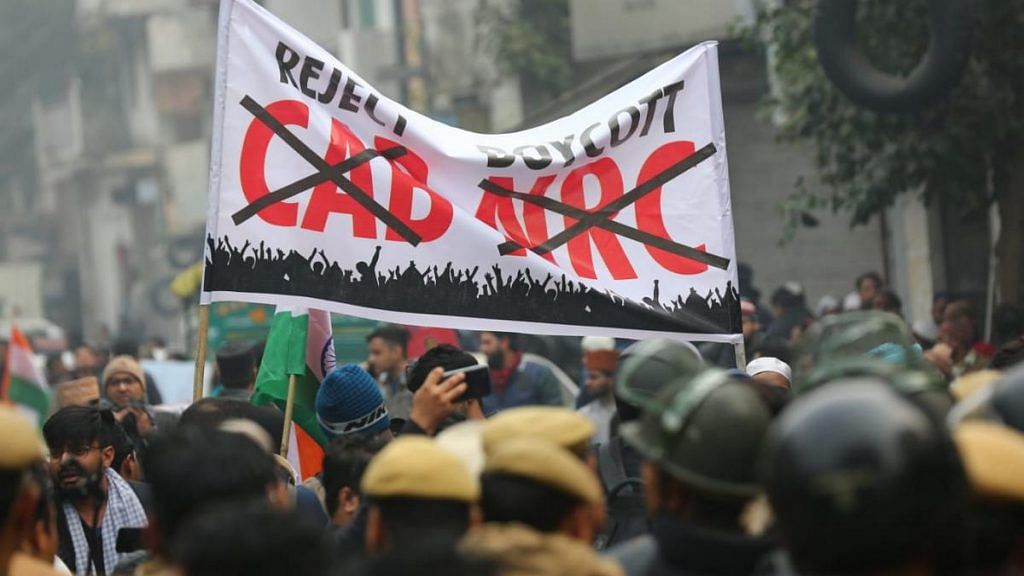New Delhi: The United Nations (UN) Friday urged India to release activists who have been arrested for protesting against the Citizenship Amendment Act (CAA).
A statement released by the UN experts read, “Authorities should immediately release all human rights defenders who are currently being held in pre-trial detention without sufficient evidence, often simply on the basis of speeches they made criticising the discriminatory nature of the CAA.”
The statement specifically mentions 11 individuals, including Meeran Haider, Gulfisha Fatima, Safoora Zargar, Asif Iqbal Tanha, Devangana Kalita, Natasha Narwal, Khalid Saifi, Shifa Ur Rehman, Dr Kafeel Khan, Sharjeel Imam and Akhil Gogoi.
It adds that many of the above individual cases include serious allegations of human rights violation, torture and ill-treatment. The experts have also alleged that bail to these protesters was being denied using “counter-terrorism or national security legislation, and using procedural police powers”.
“These defenders, many of them students, appear to have been arrested simply because they exercised their right to denounce and protest against the CAA, and their arrest seems clearly designed to send a chilling message to India’s vibrant civil society that criticism of government policies will not be tolerated,” the statement further said.
Among the 11 individuals mentioned by the UN, Gogoi, Imam, Rehman, Kalita, Narwal, Tanha, Fatima and Haider were booked under the Unlawful Activities (Prevention) Act
by the Delhi Police.
Saifi was booked by Delhi Police in the Chand Bagh violence case while Khan has been arrested for making “an inflammatory speech on the Aligarh Muslim University campus” during the anti-CAA protests. His detention under the National Security Act was also extended by three months on 12 May.
Zargar, who is more than four months pregnant now, was granted bail recently. The UN experts said in the statement that she was “kept in conditions equating to solitary confinement, denied regular contact with her family and legal representative, and having not been provided adequate medical care or diet”.
Also read: United Against Hate, the ‘fact-finding’ group accused of conspiracy in Delhi riots
‘Government response to protests was discriminatory’
The experts have called the government’s response to the protests “discriminatory” in nature.
They also alleged that authorities have not investigated allegations of incitement to hatred and violence made by CAA supporters, some of whom chanted “shoot the traitors” at protest rallies.
Taking note of how the Supreme Court has directed states to decongest jails, where inmates could be vulnerable to Covid-19, the experts called on the urgent release of the protesters.
“The reported spread of the virus in Indian prisons makes their immediate release all the more urgent,” added the experts, who said they are in touch with the government on the matter.
The list of UN experts include Mary Lawlor, special rapporteur on the situation of human rights defenders; Leigh Toomey (chair-rapporteur); Elina Steinerte (vice-chair); José Guevara Bermúdez; Seong-Phil Hong; Sètondji Adjovi (working group on arbitrary detention); David Kaye, special rapporteur on the promotion and protection of the right to freedom of opinion and expression; among others.
Also read: Delhi, UP oppose Sharjeel Imam’s plea to consolidate sedition FIRs for his AMU speech
